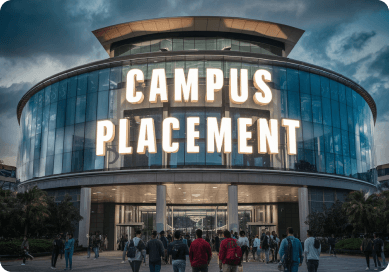Enter OTP



Tubingen, Germany

Tubingen, Germany

University of Erfurt has no tuition fee and has a high acceptance rate. The university also participates in a number of international events including the National Model United Nations NMUN in New York City winning several awards for their participation at the conference.
University of Erfurt is also home to a number of research groups part of the Erfurt doctoral and postdoctoral program. The university also hosts a number of summer schools each year including International Summer Course for German Language, Literature and Culture and Summer Program in Communications Erfurt.
Studied at the University of Erfurt from 1501 to 1505, earning a Master’s degree. Luther was the seminal figure behind... View More
Studied at the University of Erfurt from 1501 to 1505, earning a Master’s degree. Luther was the seminal figure behind the Protestant Reformation and founder of Lutheranism. View Less
Attended Erfurt University around 1418. His movable-type printing press revolutionized knowledge dissemination and is co... View More
Attended Erfurt University around 1418. His movable-type printing press revolutionized knowledge dissemination and is considered one of history’s greatest inventions. View Less
Protestant reformer, humanist, and supporter of Luther; studied at Erfurt, contributing significantly to early Reformati... View More
Protestant reformer, humanist, and supporter of Luther; studied at Erfurt, contributing significantly to early Reformation literature. View Less
A contemporary of Martin Luther and early Protestant reformer; attended Erfurt before joining Reformation circles in Wit... View More
A contemporary of Martin Luther and early Protestant reformer; attended Erfurt before joining Reformation circles in Wittenberg. View Less
Erfurt alumnus who led reforms in the Prussian army during the Napoleonic Wars, significantly influencing German militar... View More
Erfurt alumnus who led reforms in the Prussian army during the Napoleonic Wars, significantly influencing German military restructuring. View Less
Co-Chair of The Left party (2021–22) and member of the German Bundestag representing Thuringia since 2021; studied and... View More
Co-Chair of The Left party (2021–22) and member of the German Bundestag representing Thuringia since 2021; studied and completed an educational diploma at Erfurt. View Less
Longtime Bundestag member and key figure in German politics, particularly in economic and eastern Germany policies; an E... View More
Longtime Bundestag member and key figure in German politics, particularly in economic and eastern Germany policies; an Erfurt alumnus. View Less
Studied briefly at Erfurt; author of De Historia Stirpium, a foundational herbal book in medicine illustrated with detai... View More
Studied briefly at Erfurt; author of De Historia Stirpium, a foundational herbal book in medicine illustrated with detailed plant drawings. View Less
The University of Erfurt is located on a compact urban campus in central Erfurt, featuring historic mid‑20th century academic buildings that have been thoughtfully modernized. Renovated lecture halls, seminar rooms, and small research labs are seamlessly integrated into a heritage environment, creating a sense of architectural continuity. Today’s facilities include a modern Language Training Centre, computer labs, and a designated student club venue, all set within walkable distances. The campus is intentionally designed to foster ease of mobility—students can conveniently move between lecture halls, library, and central services by foot thanks to the University’s well-integrated layout and green spaces.
Student life at Erfurt is active and multicultural. A diverse array of student societies and interest groups operate on campus—from political and cultural organizations to hobby clubs and the weekly Café International, where domestic and international students interact informally. The university also participates actively in Model United Nations, with its NMUN New York team having won multiple international awards. Social and cultural life is enhanced by proximity to the vibrant Engelsburg student centre in Erfurt’s Old Town, which hosts film nights, lectures, concerts, and other events.


The University provides integrated career orientation through its mentoring system and general education programme, making it a model for holistic support in the German academic context . While it does not feature a dedicated in-house career centre, students benefit from the Studierendenwerk Thüringen’s job-exchange platforms, promotion of internships, and job postings in cooperation with external networks and portals . Academic advising, degree-structuring (via STUDIMAT), and support services all contribute to students’ preparation for employment and internships.
The below information is required while
completing the university application :
General Admission Requirements
Applicants must present a valid German higher education entrance qualification (e.g. Abitur or subject-specific equivalent). Alternative pathways include:
A vocational pathway such as a master craftsman’s qualification.
Completion of a state?recognized technical or business education programme.
Relevant prior university study, even without a traditional school-leaving certificate.
Special Admission (Aptitude) Tests
Certain programmes—such as Art, Music Education, Physical Education, and Communication Science—require subject-specific aptitude tests or assessment procedures, with an application deadline of September?30.
International Applicants
Applicants with foreign secondary qualifications must demonstrate their equivalence to the German Abitur and proof of German language proficiency (minimum B1 or B2 CEFR, often via DSH, TestDaF or telc certificates).
Know moreWhile Erfurt is not a business school, graduates are prepared for careers in education, social sciences, public policy, and cultural institutions. Programmes such as Willy Brandt School of Public Policy offer career orientation and mentorship for international social and political sectors


University of Erfurt is ranked 78th in Germany and amongst top 1500 universities in the world by UniRank university rankings. The university is also accredited by several government bodies including the Thuringian Ministry of Education, Science and Culture.
University of Erfurt is also ranked amongst top 10% institutions in the world by EduRank university rankings. EduRank also ranks the university 89th in the country.


In 2019, the University of Erfurt became the 97th institutional member of the German Research Foundation (DFG)—a milestone underscoring its recognized research strength and growth.
Erfurt secured federal funding and began construction of the humanities-focused “Weltbeziehungen” research building, a pioneering standalone facility for the Max Weber Center—the first of its kind funded by the German federal government.
The Max Weber Center for Advanced Cultural & Social Studies was designated among Germany’s top 4% of sociology-focused institutes and received over €1.4 million in COFUND EU grants by 2015, cementing its status as a leading international research centre.
The University of Erfurt’s NMUN delegation earned multiple distinctions—such as Honorable Mention, Outstanding Position Paper Awards, and Best Delegate in Committee—at NMUN conferences, including top German team recognition in 2006 and additional honors across years 2007, 2008, 2012, 2015, and 2016.
The Max Weber Center, re-established in 1998, is a major hub for interdisciplinary research in religion, culture, law, and society. It hosts internationally renowned fellows and research units on theologians like Kierkegaard and Herder .
Ongoing research groups include COMDIGMED (Communication & Digital Media), CEREB (Economics & Behavior), and graduate schools focusing on religion and media historiographies .
The university’s Research Profile Strategy 2030+, introduced in 2023, emphasises graduate education, internal networking, and societal knowledge transfer.
A digital humanities innovation co-developed by the University of Erfurt’s Gotha Research Centre in collaboration with Wikimedia Germany and the German National Library. FactGrid enables linked-data modeling of historical, biographical and bibliographic information—advancing open-access scholarly infrastructure.
Invented by Hugo Erfurt, a German pharmacist–inventor who studied in Erfurt and lent his name to the city; he created woodchip wallpaper (ingrain décor paper) that became a popular and durable decorative material in the late 19th century.
Developed by chemist Christian Friedrich Bucholz, a university-educated researcher associated with Erfurt, Sulfur Milk was among the first antiseptic chemical treatments used in medicine—marking an early scientific contribution linked to the university’s academic environment.

Embark on your educational journey with confidence! Our team of admission experts is here to guide you through the process. Book a free session now to receive personalized advice, assistance with applications, and insights into your dream school. Whether you're applying to college, graduate school, or specialized programs, we're here to help you succeed.
